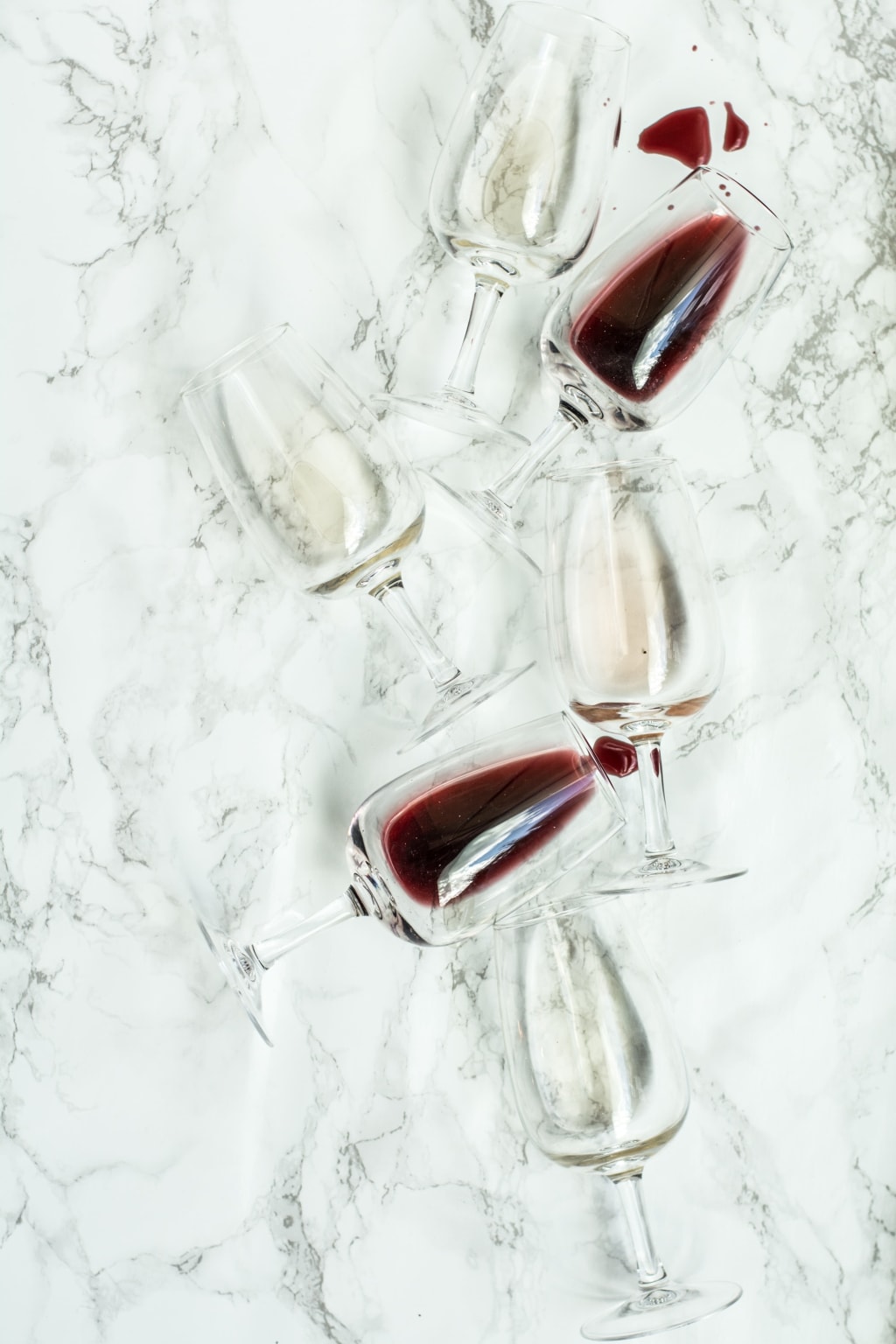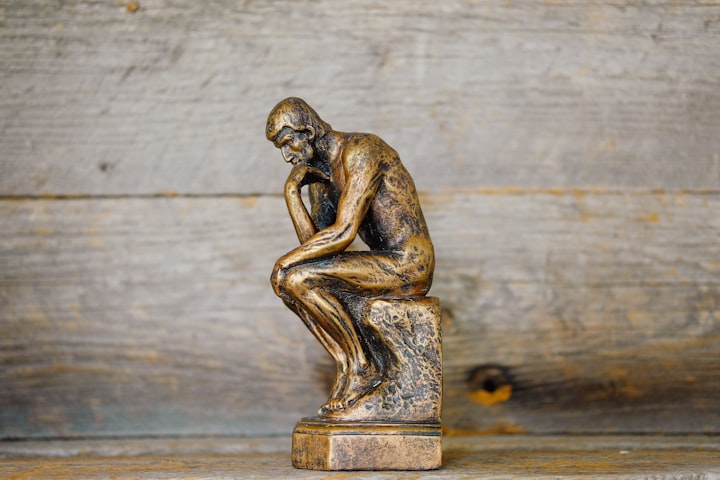5 Reasons My First Attempt at Quitting Drinking Failed
Achieving success by learning from mistakes

5 Reasons My First Attempt at Quitting Drinking Failed
On January 1st, 2016, I decided my New Year’s resolution was going to be to quit drinking. Nothing bad happened the night before. I just found myself drinking more than I normally did (being it was NYE) and noticing that it wasn’t really adding to the experience. If anything, actually, it took away from it. I wasn’t as present for my kids as I could have been and I feel asleep before it was even midnight because of all the wine and champagne I drank. I thought back to when I was in high school and overall did not drink much and was perfectly happy. I wanted to go back to feeling like that. If your track record with New Year’s resolutions is anything like mine has been, then I probably don’t have to tell you that this one didn’t last. I made it to mid-April, so about 3 and a half months. I eventually ended up stopping again in late 2017 and when I did, a book I read said that if you have not been successful with quitting drinking in the past, it is because you have not had the right tools. That, combined with all the buzz I was hearing about how failures and setbacks are lessons you can learn from, caused me to sit back and analyze why this earlier attempt was not successful. I have been able to narrow it down to 5 main reasons:
1. I never let go of the fact that I could “just have one here and there”.
From what I hear this is a common occurrence. People take a break from alcohol and then think they can go back and moderate, or think “I wasn’t that bad.” The fact that my decision to stop didn’t stem from a “rock bottom” kept me wondering if I was restricting myself too much. I had tug of wars in my head with the wine witch constantly, and eventually she won.
2. I let other people get in my head
People very close to me would say things like, “Why did you quit? it is not like you were drinking that much.” One person I went out to dinner with said they felt weird because they were drinking by themselves. People would think I was pregnant and wouldn’t believe me when I said that I wasn’t, even when I pointed out other things I was doing that I wouldn’t be if I were pregnant, like drinking soda and eating goat cheese. This really bothered me and looking back, I am not sure why. I was married, already had 2 kids, and they would have eventually realized that I was not in fact pregnant. Worrying that people would think I was pregnant or that I did something horrible when drunk, leading me to quit, would send me into a tailspin before every social situation. I would have battles in my head, wondering if I should just have one drink to avoid any social awkwardness or rumors spreading about me. These battles were mentally exhausting, and the night I ended up drinking again, it was more so because I couldn’t bear another awkward evening versus really craving alcohol.
I want to be clear that I do not blame anyone else for me going back to drinking. I had my mindset completely wrong and the comments of others simply fed into it because I allowed them.
3. I gained weight
I have seen a lot of lists online of the benefits of not drinking, and every one of them included losing weight. This is something I was excited about. I guess I thought the weight would just magically melt off if I stopped drinking, even if I didn’t change any other habits. I didn’t exercise (I hadn’t in 5 years at that point), and I basically replaced alcohol with more food. I told myself that since I was making such a drastic change quitting drinking, I deserved to indulge in desserts, fried food, etc. I also replaced alcohol with more diet soda. So I was shocked when after 3 and a half months of not drinking, I had gained weight. I felt terrible about myself and still lacked energy. It seemed the only solution was to go back to drinking so I would eat less. Ironically, this was also around the time I decided to go give running a try. I loved the stress release and the feeling of accomplishment. And I lost all the weight I had gained and then some. So I decided I could exercise regularly and moderate my alcohol. Problem solved.
4. The weather got nice
When it was the dead of winter and everyone was hunkered in their homes with blankets, quitting drinking wasn’t super hard. But then April rolled in and the sun came out. On the particular evening I ended up having a drink again, it was staying lighter later and we were going into the city for dinner. I was remembering all the evenings like that one in the 9 years I had lived in the city when I sat outside a nice restaurant with a drink in my hand. It was like Pavlov’s dog, I had to do it. This is something I later learned is a common hiccup. The spring weather sets in, then comes the summer with the beach and barbecues, and all the other nice-weather activities at which alcohol is a staple.
5. I did it alone
I had no plan. I reached out to no one. I did not use any resources. As the adage goes, “If you fail to plan, then plan to fail.”
So I went back to drinking in April of 2016. It was fine for a while, but I was still noticing negative effects of even just a few drinks. The next day I would feel anxious and/or weepy for no apparent reason. I felt unproductive. I would feel guilty about drinking in front of my kids. Then in 2017 there were a few instances of kid-free nights where I drank more than I wanted to and had to deal with embarrassment along with a horrendous hangover. The combination of these events with the not-so-great feelings even after just a few drinks led me to stopping again on Christmas Day 2017.
I did things completely differently the second time around.
1. I took the option of “just one here and there” off the table. I learned that just a few drinks still have negative effects, and being that alcohol is an addictive drug, there is always the risk of drinking more than planned. Instead of viewing this as restricting, I find it much more liberating than moderation. All the thinking about whether to drink, how many drinks to have, using will power to restrict myself after 1, dealing with guilt when I could not restrict myself, was mentally exhausting. Just taking it off the table is so much simpler.
2. Annie Grace says in This Naked Mind, “…be forewarned, getting rid of your desire for alcohol is the easy part. The hard part is going against groupthink, the herd mentality of our alcohol-saturated culture.” Living alcohol-free puts you in a minority, but I have learned to be ok with that and have let go of caring so much about what other people think. That too is liberating. As Mark Twain says, “Whenever you find yourself on the side of the majority, it is time to pause and reflect.” I have this quote framed on my desk, as it also applies to other areas in my life that I have embraced after going alcohol-free.
3. Instead of indulging in food to make up for not drinking, I learned to not look at it as missing out. I focused on what I was gaining. More ability to be present, increased productivity, no hangovers, etc (I could go on about the benefits for a long time). I got out of the “I deserve this” mindset. I also leaned harder into running and focused on eating healthy. I focused on improving my mental health too. I have worked with therapists and coaches. We got out of debt and cleaned up our finances. I improved my job situation. I meditate and journal.
4. When the weather gets nice, I learned that a glass of club soda or fruit-flavored sparkling water is even more refreshing than an alcoholic beverage, because it doesn’t dehydrate. My brain has been retrained to expect that instead.
5. Instead of doing it alone, I joined online sober Facebook groups (Sober Mommies Support Group, Recovery is the New Black, This Naked Mind group) and connected with people. I met people in person who also do not drink. I read 2 books that completely changed my outlook on alcohol: The Easy Way for Women to Stop Drinking by Allen Carr (there are multiple variations that aren’t specific just to women, such as Stop Drinking Now) and This Naked Mind by Annie Grace. I am subscribed to blogs and newsletters on alcohol-free living. There are many others.
I am finishing writing this on January 1st, 2020, 4 years to the day of that first attempt at quitting. I just celebrated 2 years of alcohol-free living on Christmas Day. I struck my own path, and it has been incredible and made all the difference. It is not always easy, but it is life that is hard, and I can’t think of a single negative experience in my life that alcohol ever actually made better.
If you are thinking of stopping for whatever reason, I am here to say that you don’t have to feel like you are missing out. It can be amazing. You don’t have to do it alone, there are so many resources out there for you: in-person support groups, online support groups, mental health counselors, coaches, books, blogs. I could go on. A google search did it for me. Don’t be afraid to reach out. And don’t feel like you have to hit rock bottom to stop if you truly do not feel like it is serving you anymore.






Comments
There are no comments for this story
Be the first to respond and start the conversation.